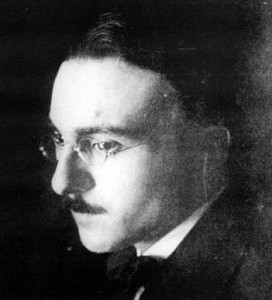
Yesterday afternoon a man from the city
Spoke outside the tavern door.
Spoke to me too.
Spoke of justice and the struggle for justice
And of the workers who suffer,
And the constant work, and those who are hungry,
And of the rich, who just have turned away from this.
And, looking at me, he saw tears in my eyes
And smiled with satisfaction, judging how I felt
The anger that he felt and the compassion
Is what he was saying about how I felt.
(But I had barely been listening to him
Why is it important to me humanity?
And what they suffer from or assume who is suffering?
Be like me – you will not suffer.
All the evil in the world must be imported from each other,
Both want to do good, to do harm.
Our soul and heaven and earth suffice.
Wanting more is to lose it, and be unhappy.)
So what was I thinking
When the friend of men spoke
(And that moved me to tears),
It was how the distant murmur of symbols
At that sundown
Didn’t seem to be the chimes of a small church
Calling to mass but of the flowers and a carefree stream
To a simple soul like mine.
(Praise be to God that I am not good,
And I have the natural egoism of the flowers
And the rivers which follow their way
Preoccupied without knowing
Alone with the flowers and the head rushing.
Is this the only mission in this world,
Which-exists unambiguously,
And find out how to do it without thinking about it.)
And that man was silent, looking at the sunset.
What business is it of the sunset who hates and loves?

David Scanlon – England – (1963 – )
Pessoa, F. (2018) Poems of Alberto Caeiro. In Portuguese and translated to English by David Scanlon. The Foolish Poet Press, Wilmslow, Portugal. THE KEEPER OF FLOCKS - XXXII. Page Number 45.

Ontem à tarde um homem das cidades
Falava à porta da estalagem.
Falava comigo também.
Falava da justiça e da luta para haver justiça
E dos operários que sofrem,
E do trabalho constante, e dos que têm fome,
E dos ricos, que só têm costas para isso.
E, olhando para mim, viu-me lágrimas nos olhos
E sorriu com agrado, julgando que eu sentia
O ódio que ele sentia, e a compaixão
Que ele dizia que sentia.
(Mas eu mal o estava ouvindo.
Que me importam a mim os homens
E o que sofrem ou supõem que sofrem?
Sejam como eu—não sofrerão.
Todo o mal do mundo vem de nos importarmos uns com os outros,
Quer para fazer bem, quer para fazer mal.
A nossa alma e o céu e a terra bastam-nos.
Querer mais é perder isto, e ser infeliz.)
Eu no que estava pensando
Quando o amigo de gente falava
(E isso me comoveu até às lágrimas),
Era em como o murmúrio longínquo dos chocalhos
A esse entardecer
Não parecia os sinos duma capela pequenina
A que fossem à missa as flores e os regatos
E as almas simples como a minha.
(Louvado seja Deus que não sou bom,
E tenho o egoísmo natural das flores
E dos rios que seguem o seu caminho
Preocupados sem o saber
Só com o florir e ir correndo.
É essa a única missão no Mundo,
Essa—existir claramente,
E saber fazê-lo sem pensar nisso.)
E o homem calara-se, olhando o poente.
Mas que tem com o poente quem odeia e ama?

Fernando Pessoa – Portugal – (1888 - 1935)
Caeiro, A. (1914)[1946] ”O Guardador de Rebanos” In Poemas de Alberto Caeiro (Nota explicativa e notas de João Gaspar Simões e Luiz de Montalvor.) Ática: Lisboa.
Work is no longer protected by copyright.



 Constantine Petrou Cavafy
Constantine Petrou Cavafy Fernando Pessoa
Fernando Pessoa Poemhunter.com
Poemhunter.com Poetry Foundation
Poetry Foundation ISBNdb.com
ISBNdb.com Open library
Open library